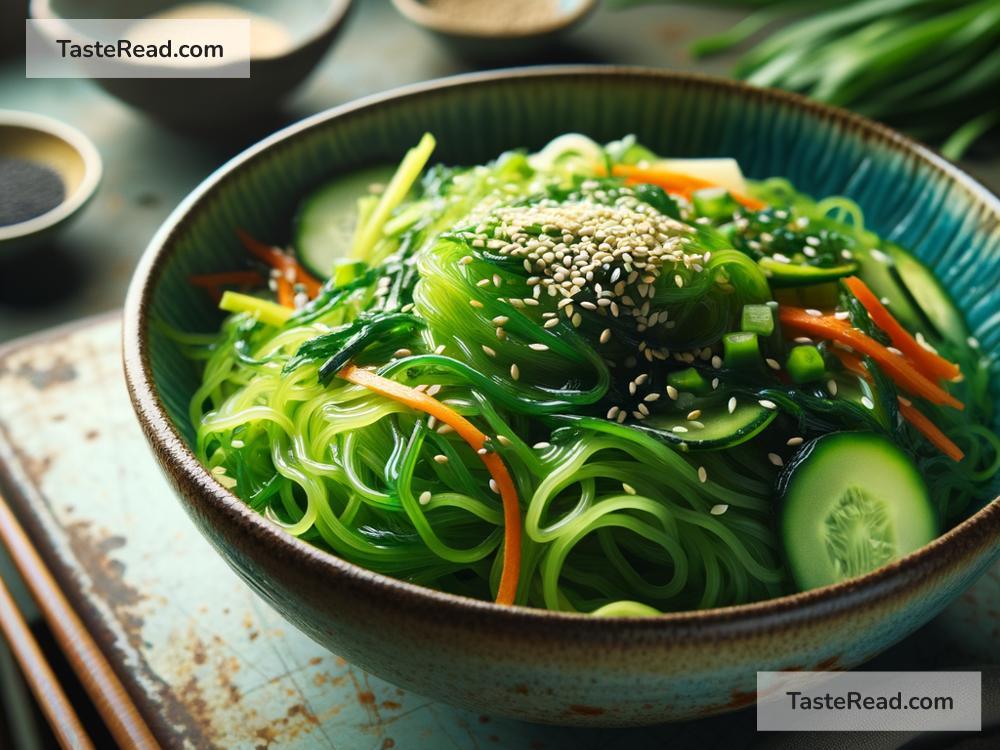Why Kelp Is the New Star in the Plant-Based Cooking Universe
In the vast universe of plant-based cooking, there seems to be an ever-growing list of ingredients that capture the imagination and taste buds of food enthusiasts around the world. Among these, one marine vegetable is making waves for its unique qualities and benefits – kelp. Yes, you heard it right! The same seaweed that sways along ocean floors is now capturing hearts in kitchens globally. So, what’s the big deal about kelp and why is it gaining so much attention in the world of plant-based cooking? Let’s dive in and find out.
What Is Kelp, Anyway?
First things first, kelp is a type of large brown seaweed that thrives in underwater forests in shallow oceans. Known for its rapid growth and environmental benefits, such as carbon absorption, kelp is more than just a plant; it’s a superhero of the sea. It’s incredibly versatile and can be found in various forms in the grocery store – from fresh and dried to powdered and even in noodles.
Nutritional Powerhouse
One of the biggest reasons kelp is stealing the spotlight is its incredible nutritional profile. It’s packed with vitamins, minerals, and antioxidants. Kelp is a rich source of iodine, which is crucial for thyroid health. It also boasts high levels of calcium, magnesium, vitamin K, and iron. Plus, it contains a type of natural fiber called alginate, which helps in digestion and might even aid in weight loss efforts. For anyone on a plant-based diet, kelp offers a nutrient boost that’s hard to ignore.
Sustainability Champion
In an age where sustainability is more than just a buzzword, kelp stands out for its eco-friendly credentials. It doesn’t require fertilizer, freshwater, or land to grow, making it a highly sustainable crop. Kelp farms can also have a positive impact on the marine environment by improving water quality and providing habitat for marine life. Opting for kelp in your diet means you’re choosing a food source that’s good for the planet.
A Culinary Chameleon
Kelp isn’t just about nutrition and sustainability; it’s also a dream ingredient for chefs and home cooks alike. Its versatility in the kitchen is astounding. Kelp can add depth to soups and stews, a unique umami flavor to sauces and dressings, and a surprising twist to salads. Dried kelp can be used as a seasoning, offering a salty taste without the actual salt. Kelp noodles are a fantastic gluten-free and low-calorie alternative to traditional pasta. The possibilities are truly endless, making kelp a fun and interesting ingredient to experiment with.
The Umami Factor
For those on a quest to replicate the rich, savory flavors often missing from plant-based dishes, kelp is a game-changer. Umami, known as the fifth taste alongside sweet, sour, bitter, and salty, is abundantly present in kelp. This makes it an excellent addition to dishes when you’re looking to boost flavor without relying on animal products. Kelp can enhance the taste profile of vegan and vegetarian recipes, giving them a complexity and richness that’s incredibly satisfying.
Accessibility and Awareness
The growing interest in kelp is also being fueled by its increased accessibility and awareness. More supermarkets, health food stores, and online retailers are stocking kelp products, making it easier for consumers to experiment with this sea green. Meanwhile, chefs and food influencers are introducing kelp into mainstream culinary conversations, showcasing its potential in diverse and delicious ways.
Conclusion
Kelp is quietly but confidently taking its place in the spotlight of plant-based cooking, and for good reason. Its blend of nutritional benefits, environmental sustainability, culinary versatility, and delicious umami flavor makes it a powerhouse ingredient that’s hard to ignore. Whether you’re a long-time vegan, a curious flexitarian, or simply someone who loves to explore different foods, kelp is worth diving into. So next time you’re wandering the aisles of your local grocery store or browsing recipes online, consider giving kelp a chance. Who knows? It might just become your new favorite ingredient in the quest for healthier, sustainable, and flavorful eating.


